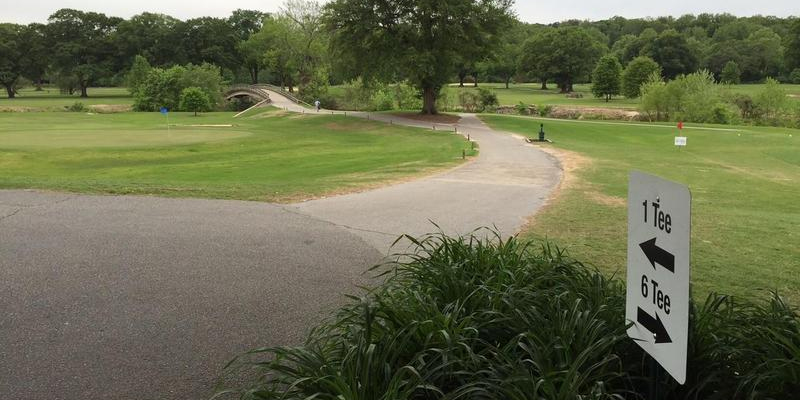Atlanta Approves Bobby Jones Golf Course Transfer To State

Elly Yu / WABE
The Atlanta City Council approved legislation Monday that would allow the city to transfer a Buckhead public golf course to the state in exchange for state property in downtown Atlanta.
The Council voted 12-3 to allow the transfer of Atlanta’s Bobby Jones Golf Course to the state. In turn, the city would get a parking deck and nearby property near Underground Atlanta that city officials have said is necessary to redevelopment of the downtown area.
Opponents said they still had questions about the proposal and how the state would manage the property.
“You know words are one thing, something in writing is another,” said Councilwoman Felicia Moore. “And my concern is doing this now and then hoping all these other pieces as they have been committed to people all really occur later.”
The plan for the course includes creating a Georgia Golf Hall of Fame facility and fostering a place for young golfers to play, said Chuck Palmer, chairman of the Bobby Jones Golf Course Foundation.
“This will be a mecca for junior golf,” Palmer said.
The plan would also turn the course from an 18-hole course to a nine-hole course, which critics have opposed.
“While I appreciate the passion of the opponents, the simple fact is the golf course has to change,” Palmer said. He said studies found the course was “extremely dangerous.”
Atlanta Mayor Kasim Reed told the City Council that the state expressed interest in the property last year, and would invest at least $25 million in the golf course. The Georgia State Property Commission would run the project in partnership with Georgia State University, Reed has said.
But opponents said they were concerned about preserving the history of the public golf course. Michael Holmes, son of golfer Alfred “Tup” Holmes, said he’s not against redevelopment of Underground Atlanta, but opposes the proposed changes to the Bobby Jones Golf Course.
“We throw away our history,” Holmes said.
Moore and Councilwoman Mary Norwood wanted to send the legislation back to committee to give the proposal more time, but the motion failed.
9(MDAxODM0MDY4MDEyMTY4NDA3MzI3YjkzMw004))








